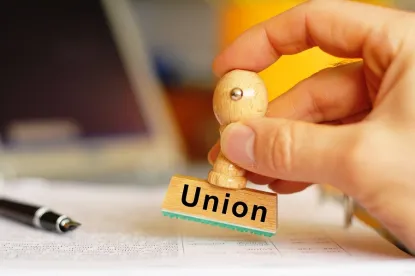The National Labor Relations Act protects the rights of employees with respect to both employers and labor organizations (i.e., unions). A recent decision by the National Labor Relations Board (NLRB) regarding the Teamsters is another reminder that unions – just like employers – can be held liable for damages stemming from labor law violations.
At issue in the case was the Teamsters’ unlawful operation of an exclusive hiring hall. Specifically, it was found that the union unlawfully refused to refer a specific employee for work opportunities. Based on that finding, the NLRB ordered the Teamsters to remit to the employee back pay for a three-and-a-half year period (March 2008 – August 2011). The Teamsters, however, resisted payment and argued that the employee’s back pay damages should be substantially reduced based on an alleged “failure to mitigate damages” defense. Under the law, employees have a duty to take reasonable measures to offset their damages, such as by trying to find subsequent, similar employment. The Teamsters went so far as to commission a report in an effort to show the employee did not avail herself of other work opportunities that were available in the area. The NLRB, however, rejected the union’s arguments, noting there were several deficiencies in the report (e.g., lack of essential details on whether the allegedly available jobs were comparable, etc.). Accordingly, the union was ordered to pay the employee full back pay for the three-year period.
While NLRB cases targeting unions are relatively rare as opposed to those against employers, this case demonstrates the agency does prosecute labor organizations’ violations when they occur. It also serves as a reminder that while a failure to mitigate defense can be useful in potentially reducing back pay exposure, a party must be sure to produce credible evidence that supports the defense.
Nick Seifer contributed to this post.



 />i
/>i

